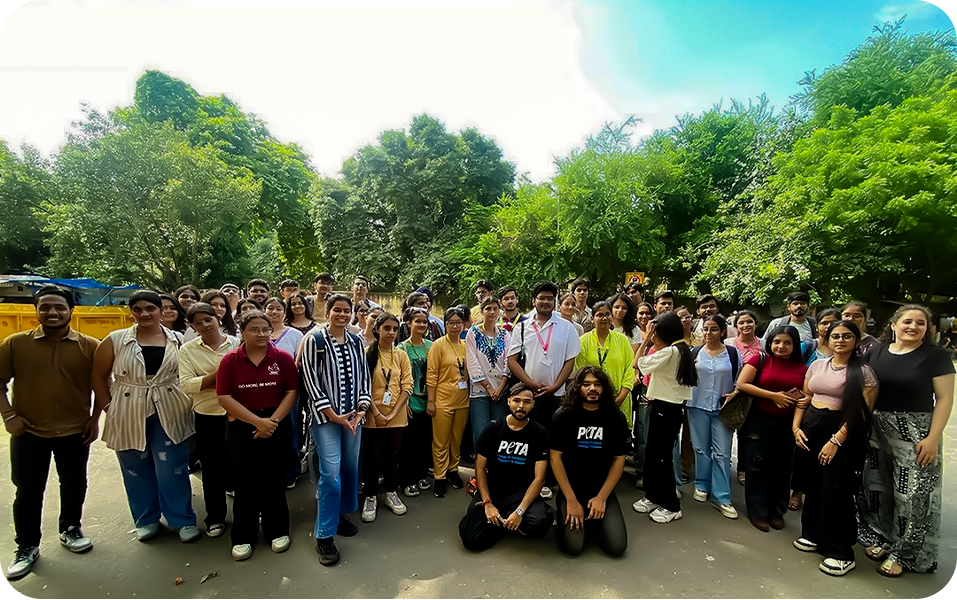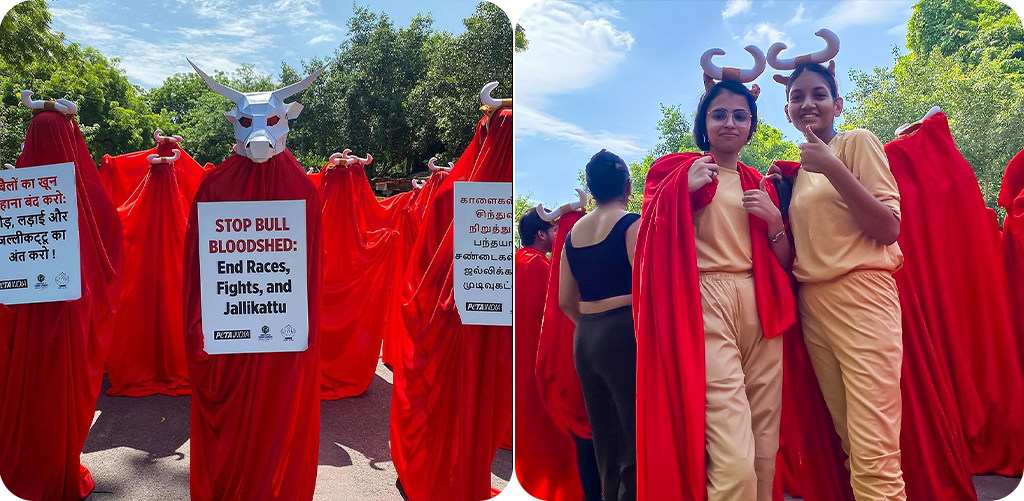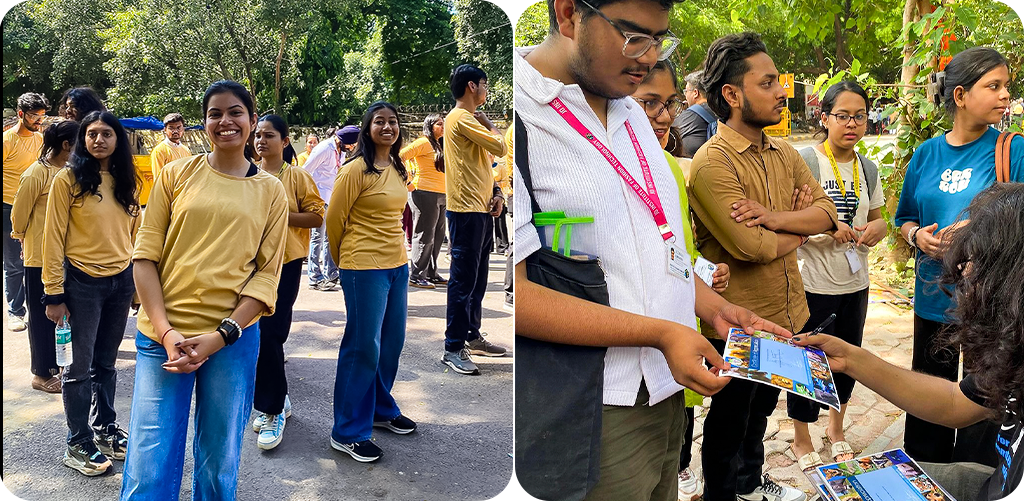

The students of JD Institute of Fashion Technology took a significant step toward advocating for animal rights by joining forces with PETA India supporters and the Ashray Foundation at a protest held at Jantar Mantar. The demonstration was aimed at raising awareness about the cruel treatment of bulls in events like races, fights, and the traditional practice of Jallikattu. By combining fashion and activism, the students underscored their institute’s commitment to social responsibility and ethical advocacy.
The protest was unlike any other. The students brilliantly conveyed the hideous reality that bulls endure during rituals such as Jallikattu by adorning symbolic costumes that featured horns and scarlet veils. Protesters’ use of skeletal bull masks, worn by one of the leaders, served to highlight the savagery of the proceedings. Displayed beside these images were placards bearing the words “Stop Bull Bloodshed: End Races, Fights, and Jallikattu,” emphasising the demonstrators’ determination to put a stop to the bloodshed.

The goal of JD Institute is to inspire its students to think beyond the surface level when they apply their creative abilities, and this combination of fashion with advocacy is a prime example of that. Both the activists and onlookers were moved by the powerful visual message made by these leaders and our aspiring students.
The significance of the protest’s message was heightened by the selection of costumes and props. The blood-red veils were a sobering reminder of the agony inflicted upon the bulls, while the horns represented the animals who were brutally treated. Students’ capacity to harness their imaginations as a force for positive social change was on full display in this application of fashion.
This event further strengthened JD Institute of Fashion Technology’s dedication to ethical advocacy, which the institution has long been recognised for imparting in its students. Protests like these help the institute’s students realise the power of their acts and grow into global citizens who are conscious of the consequences of their choices.
One of the central issues highlighted by the protest was the practice of Jallikattu, a traditional bull-taming sport held during the Pongal festival in Tamil Nadu. Despite its cultural significance, Jallikattu has been the subject of widespread criticism due to the physical and emotional harm inflicted on the bulls. Activists argue that these animals are often subjected to extreme stress and violence, including being chased, taunted, and sometimes injured or killed during the event.
The protests against Jallikattu and similar practices have gained traction in recent years, with organisations like PETA India and the Ashray Foundation leading the charge. JD Institute’s participation in these protests demonstrates a growing recognition within the fashion industry of the need to address ethical issues, not just within the world of fashion but also in the broader context of animal rights and social justice.
The Jantar Mantar protest serves as a stark reminder of the fashion industry’s influence on social change. As the JD Institute students’ designs and creativity amplified the protest’s message, they proved that fashion is more than just a means of artistic expression; it can be a force for positive social and ethical change. Beyond just making stunning clothes, designers’ responsibilities are growing in the ever-changing fashion industry.

These days’ designers aren’t simply creatives; they’re activists who use their platforms to bring attention to social fairness, environmental sustainability, and slaughterhouse conditions. Empowering its students to be both creative innovators and ethical leaders, JD Institute of Fashion Technology is at the epicentre of this movement.